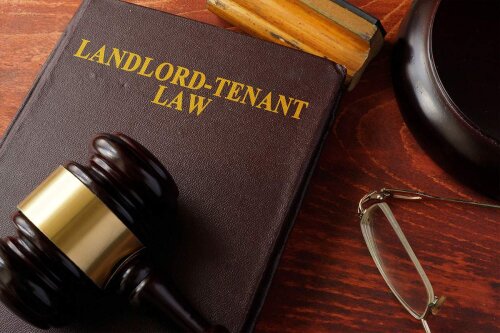Best Lawsuits & Disputes Lawyers in Alabama
Share your needs with us, get contacted by law firms.
Free. Takes 2 min.
Or refine your search by selecting a city:
List of the best lawyers in Alabama, United States
About Lawsuits & Disputes Law in Alabama, United States
Lawsuits and disputes law in Alabama refers to the legal processes, rules, and regulations that help individuals and organizations resolve disagreements through the court system or alternative dispute resolution methods such as mediation or arbitration. These disputes may involve contracts, property, personal injury, business dealings, employment, and more. The Alabama civil court system manages most lawsuits and legal disputes, ensuring the fair and orderly resolution of conflicts under state and federal law.
Why You May Need a Lawyer
Many situations can lead to legal disputes in Alabama, making professional legal advice essential. Common scenarios include breach of contract, landlord-tenant disagreements, business partnership disputes, construction issues, personal injury claims, employment disagreements, family disputes, and issues involving consumer rights. A qualified lawyer can help evaluate your legal options, negotiate settlements, represent you in court, and ensure your rights are protected throughout the process.
Local Laws Overview
Alabama’s laws regarding lawsuits and disputes are primarily guided by state codes and court procedures. Important aspects include the statute of limitations, which sets deadlines for filing specific types of cases. For personal injury claims, the limit is generally two years, while breach of contract may allow up to six years. Alabama follows the contributory negligence rule, which can bar recovery if you are found even slightly at fault in some cases. The state also has rules governing small claims court, mediation, and arbitration for resolving disputes outside the traditional court setting. Understanding court procedures, filing requirements, and the role of local courts is important when seeking to resolve a dispute in Alabama.
Frequently Asked Questions
What is the statute of limitations for filing a lawsuit in Alabama?
The statute of limitations depends on the type of case. For personal injury, you usually have two years from the date of the injury. Breach of written contract suits typically must be filed within six years, while property damage has a two-year limit.
What is contributory negligence, and how does it affect my case?
Alabama uses the contributory negligence rule. If you are found even one percent at fault for your injury or loss in actions like personal injury, you may be barred from recovering damages.
Can I represent myself in an Alabama lawsuit?
Yes, individuals may represent themselves, which is known as proceeding pro se. However, court rules and procedures can be complex, so consulting an attorney is recommended for most cases.
What is small claims court, and when can I use it?
Small claims court is designed for simpler cases involving limited amounts of money. In Alabama, you can file cases in small claims court for damages not exceeding six thousand dollars.
How are disputes resolved outside of court in Alabama?
Alternative dispute resolution methods such as mediation and arbitration are available. These can offer faster, less formal ways to resolve disputes, sometimes required before a lawsuit can proceed.
What happens if the other party does not respond to my lawsuit?
If the defendant does not file a response within the required timeframe, you may seek a default judgment, which may result in a ruling in your favor without a trial.
What kinds of compensatory damages can I claim in a lawsuit?
Compensatory damages in Alabama can cover actual losses like medical expenses, lost wages, and property damage. In some cases, punitive damages may also be awarded to punish wrongdoing.
Do lawsuits have to go to trial?
No, many lawsuits in Alabama are resolved through settlement negotiations, mediation, or arbitration before reaching trial. Trials are only necessary if the parties cannot agree.
Are there special rules for suing government entities in Alabama?
Yes, suing a government entity generally requires filing a notice of claim within six months of the incident, and lawsuits are subject to additional requirements and possible immunity protections.
How long does a typical lawsuit take to resolve in Alabama?
The duration depends on the complexity of the case, court schedules, and whether the dispute settles early. Simple cases may resolve in a few months, while more complex cases can take a year or more.
Additional Resources
People seeking information or assistance regarding lawsuits and disputes in Alabama can turn to several resources. The Alabama State Bar Association provides lawyer referral services and public information. Local county courthouses and their clerks can help with procedural questions and document filing. Legal aid organizations such as Legal Services Alabama offer support for eligible low-income residents. The Alabama Center for Dispute Resolution provides information on mediation and arbitration. The Alabama Administrative Office of Courts offers online resources and self-help guides for court users.
Next Steps
If you are facing a lawsuit or legal dispute in Alabama, it is important to act quickly due to time limits and court requirements. Begin by gathering all relevant documents and information about your dispute. Consult with a qualified Alabama attorney who specializes in your type of case for guidance, evaluation, and representation. If you meet income guidelines, investigate whether you qualify for free or reduced-cost legal aid. Stay informed about court dates and filing deadlines. Always follow your lawyer’s advice, keep records of all communications, and do not ignore any official court paperwork. Proactive and informed action can help you protect your rights and achieve the best possible resolution.
Lawzana helps you find the best lawyers and law firms in Alabama through a curated and pre-screened list of qualified legal professionals. Our platform offers rankings and detailed profiles of attorneys and law firms, allowing you to compare based on practice areas, including Lawsuits & Disputes, experience, and client feedback.
Each profile includes a description of the firm's areas of practice, client reviews, team members and partners, year of establishment, spoken languages, office locations, contact information, social media presence, and any published articles or resources. Most firms on our platform speak English and are experienced in both local and international legal matters.
Get a quote from top-rated law firms in Alabama, United States — quickly, securely, and without unnecessary hassle.
Disclaimer:
The information provided on this page is for general informational purposes only and does not constitute legal advice. While we strive to ensure the accuracy and relevance of the content, legal information may change over time, and interpretations of the law can vary. You should always consult with a qualified legal professional for advice specific to your situation.
We disclaim all liability for actions taken or not taken based on the content of this page. If you believe any information is incorrect or outdated, please contact us, and we will review and update it where appropriate.
Browse lawsuits & disputes law firms by service in Alabama, United States
Alabama, United States Attorneys in related practice areas.
Browse lawsuits & disputes law firms by city in Alabama
Refine your search by selecting a city.















